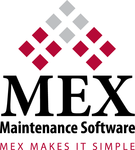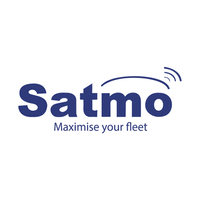What Is Fleet Management Software?
Fleet management software is a technology solution that enables businesses to efficiently manage their vehicle fleets. It offers a complete solution for tracking, monitoring, and optimizing all elements of fleet operations. Fleet management software is essentially a centralized platform that collects data from a variety of sources, including GPS tracking devices, vehicle sensors, and maintenance records.
This gives fleet managers real-time visibility over their fleet's location, performance, and maintenance requirements. One of the most significant benefits of this software is its capacity to streamline and automate manual activities, saving firms time and resources. The software's capabilities allow for easy management of tasks such as route planning, vehicle scheduling, and fuel management.
Fleet management software not only improves operational efficiency but also helps businesses save money. Real-time tracking and driver behavior monitoring can help to avoid accidents and save insurance costs. The software also gives data-driven insights that may be used to save money by optimizing routes and eliminating idle time.
Businesses considering to invest in fleet management software should assess their fleet's individual demands and goals. Features including real-time tracking, vehicle diagnostics, and maintenance management should be assessed to ensure they are in line with the company's goals. Overall, fleet management software is an invaluable resource for businesses seeking to optimize fleet operations, increase efficiency, and cut expenses. With its extensive features and benefits, it is essential for enterprises that rely on a fleet of vehicles to function.
What Are The Recent Trends In Fleet Management Software?
Fleet management software has evolved significantly in recent years, owing to technological advancements and growing demand for more efficient and cost-effective solutions. As a buyer, you must stay current on industry developments in order to make informed selections about which software is most suited to your company's needs.
we'll go over the current developments in fleet management software and how they can help your company.
1. Cloud-Based Solutions: One of the most noticeable trends in fleet management software is the transition to cloud-based solutions. This means that the program is hosted in the cloud and accessible from any device with an internet connection. This eliminates the need for costly hardware and manual installs, making it a more affordable choice for organizations of all sizes.
2. Real-Time Tracking: Real-time tracking is now a standard feature of most fleet management software. Fleet managers can use GPS technology to watch their cars' location, speed, and performance in real time, allowing for more control and efficiency. This capability is particularly useful for organizations with a large fleet because it enables them to make informed decisions about route optimization and driver behavior.
3. Predictive Maintenance: Traditional fleet management systems were based on planned maintenance, which frequently resulted in unexpected breakdowns and costly repairs. However, with the latest fleet management software, businesses can now utilize predictive maintenance systems to track and analyze vehicle data in order to anticipate future difficulties and schedule repair ahead of time. This not only helps to reduce downtime but also saves money in the long term.
4. Integration With Mobile Devices: In today's fast-paced corporate climate, fleet managers must be connected and in control even while on the road. That's why most fleet management software now includes a mobile app or can be accessed via a mobile browser, allowing for better communication and administration from anywhere and at any time.
5. Data Analytics: With so much data coming in from vehicles and drivers, fleet management software now includes data analytics tools to help firms make sense of it all. These solutions can provide useful insights about driver behavior, fuel usage, vehicle performance, and other factors, helping businesses to optimize their operations and save money.
Benefits Of Using Fleet Management Software
Fleet Management Software (FMS) is a complete technology that enables organizations to successfully manage their vehicle fleets. With the evolution of technology, FMS has become an invaluable asset for organizations who rely on their fleet for everyday operations. From small businesses with a few vehicles to huge corporations with a vast fleet, FMS provides various advantages that increase efficiency, lower costs, and encourage safety.
we will look at the primary advantages of utilizing FMS to help you make an informed selection for your firm.
1. Real-Time Tracking And Monitoring: One of the primary benefits of FMS is the ability to follow and manage your fleet in real time. The software uses GPS technology to deliver real-time location updates for all vehicles in your fleet. This enables you to track routes, speeds, and fuel usage. With this information, you may detect inefficiencies, improve routes, and make cost-cutting adjustments.
2. Improved Route Planning And Management: FMS provides a strong route planning and optimization function to assist firms enhance efficiency and production. With accurate real-time data, the software can suggest the most effective routes for your drivers, taking into consideration traffic, road closures, and weather conditions. This not only saves time, but also lowers fuel expenses and vehicle wear and tear.
3. Fleet Maintenance And Diagnostics: Proper fleet maintenance is critical to ensuring driver safety and vehicle longevity. FMS provides maintenance monitoring and diagnostics capabilities that allow you to schedule and track common maintenance chores like oil changes, tire rotations, and inspections. This keeps your fleet in good shape, reducing the danger of failures and costly repairs.
4. Cost Management And Reduction: FMS allows you to keep track of your fleet's expenses, such as fuel, maintenance, and insurance. The program can generate thorough statistics and analytics, allowing you to pinpoint areas where you may save money and improve productivity. FMS can help organizations save money over time by optimizing fuel use, minimizing idle time, and enhancing route planning.
5. Improve Driver Safety: Promoting driver safety is critical for every business that has a fleet of vehicles. FMS includes driver behavior monitoring, which detects speeding, abrupt braking, and fast bends. This information can subsequently be utilized to provide feedback and instruction to drivers, encouraging safe driving habits and lowering the likelihood of accidents.
6. Compliance And Regulations: Compliance with laws such as Hours of Service (HOS) and Electronic Logging Devices (ELD) is an essential part of fleet management. FMS automates compliance and ensures that your organization meets all legal obligations. This helps you avoid penalties and preserve a good reputation for your organization.
Important Factors To Consider While Purchasing Fleet Management Software?
When considering investing in fleet management software, there are numerous key elements to consider to ensure you get the best option for your company. By carefully evaluating these essential components, you can make an informed selection that will simplify operations, increase efficiency, and ultimately save you time and money.
1. Scalability: Scalability is an important factor to consider while buying fleet management software. Your company may have a few vehicles now, but as it expands, your fleet will most certainly expand as well. It is critical to select a software system that can accommodate your present fleet size while also allowing for future expansion.
2. Features And Functionality: Each fleet management software has a unique set of features and capabilities. Before making a purchase, identify your company's specific objectives and criteria and choose a solution that meets them. Some important features to check for are real-time tracking, route optimization, maintenance scheduling, and driver behavior monitoring.
3. Usability: The program you choose should be straightforward to use and navigate. A convoluted interface will only cause confusion and disruption in workflow, resulting in wasted time and resources. It is best to obtain a demo or trial of the program before making a final decision to confirm that it satisfies your usability requirements.
4. Integration Capabilities: Many firms currently employ multiple software platforms to manage various elements of their operations. When choosing fleet management software, it is critical to assess how it integrates with your existing systems. This will resolve any compatibility concerns and ensure a seamless integration procedure.
5. Cost: Pricing is a significant consideration when selecting fleet management software. It is critical to understand the cost structure and assess if the program is within your budget. Consider any additional charges, such as installation fees, training, and ongoing support, to gain a full picture of the software's true cost.
6. Customer Assistance: A dependable customer service team can make all the difference in the success of your fleet management software deployment. Look for a supplier who provides many support channels, such as phone, email, and live chat, to resolve any queries or issues that may occur quickly.
7. Security: With the growing threat of cyber assaults and data breaches, ensuring that your fleet management software has strong security features is critical. Look for solutions that include user authentication, data encryption, and regular backups to safeguard your critical information.
What Are The Key Features To Look For In Fleet Management Software?
When it comes to investing in Fleet Management Software, there are a few crucial things to look for to guarantee you're making the correct decision for your company. These features not only simplify your fleet operations, but they also increase efficiency, lower expenses, and overall productivity. So, what vital characteristics should you seek for in Fleet Management Software? Let's dive in.
1. Real-Time Tracking And Monitoring: One of the most important aspects of any Fleet Management Software is the ability to track and monitor your cars in real time. This function allows you to track your fleet's exact location, check its speed and performance, and receive warnings if there are any safety or security problems. Real-time tracking also allows you to make better dispatching and routing decisions, resulting in more efficient and timely delivery.
2. Route Optimization: A decent Fleet Management Software should include route optimization features that allow you to create the most efficient routes for your fleet. This not only saves time and gasoline, but it also lessens wear and tear on your automobiles. To design the best routes for your drivers, the software should take into account a variety of factors such as traffic, weather, and road conditions.
3. Vehicle Maintenance: Keeping your fleet well-maintained is critical to its efficient functioning and lifespan. Look for fleet management software that includes vehicle maintenance tracking, scheduling, and reminders. This function allows you to remain on top of normal maintenance work and avoid breakdowns, saving you time and money.
4. Driver Management: Your drivers play an important role in your fleet, and their performance can have a significant impact on your business. Fleet Management Software allows you to monitor driver behavior such as speeding, forceful braking, and idling and take appropriate corrective steps. Some software also lets you manage driver timetables, track hours of service, and measure driver weariness.
5. Integration With Other Systems: Your Fleet Management Software should be able to work seamlessly with your current systems, such as accounting, dispatch, and fuel management. This facilitates data transfer, streamlines operations, and removes the need for human data entry.
6. Reporting And Analytics: To make sound judgments, you must have access to precise and detailed information. Look for Fleet Management Software that provides customisable reporting and analytics to help you understand your fleet's performance, costs, and trends. This information can help you find areas for improvement and optimize your processes to get better results.
Why Do Businesses Need Fleet Management Software?
Fleet management software can assist organizations of all kinds, including logistics enterprises, transportation services, and even smaller businesses with a few company cars. This complete software system enables organizations to automate all elements of fleet management, including vehicle monitoring, maintenance, and fuel bills. But why do businesses require fleet management software? Let's look at some of the important causes.
1. Increased Efficiency And Cost Savings: Fleet management software enables organizations to watch their cars in real time, optimizing routes and timetables, reducing idle time, and monitoring fuel use. This improves efficiency and results in significant cost savings on gasoline, labor, and vehicle maintenance.
2. Improved Safety And Security: Fleet management software offers organizations with extensive information about their vehicles' position and actions, allowing them to ensure driver safety on the road. Furthermore, the software enables the adoption of safety rules and notifications in the event of unauthorized use or accidents, assuring the safety of both the vehicles and their drivers.
3. Effective Maintenance Management: Regular vehicle maintenance is critical for keeping a fleet operational. Fleet management software helps organizations create maintenance schedules, track service and repair histories, and predict probable breakdowns using vehicle data. This results in a well-maintained fleet, which avoids unexpected breakdowns and costly repairs.
4. Compliance And Documentation: Fleet management software can be a game changer for firms that must adhere to tight compliance rules. The software can help you maintain track of crucial compliance documents like driver's licenses, insurance policies, and car registrations, ensuring that they are always up to current.
5. Detailed Reporting And Analytics: Fleet management software provides firms with detailed insights via data analytics and reporting. These reports assist in identifying areas for improvement, tracking important performance measures, and making data-driven decisions that have a beneficial influence on the bottom line. Finally, fleet management software is a crucial tool for firms that want to manage their fleet more efficiently, save money, and improve safety and compliance levels. With its numerous features and benefits, it is an excellent investment for any business with a fleet of vehicles.
How Much Time Is Required To Implement Fleet Management Software?
The time necessary to adopt fleet management software varies depending on a number of factors, including the size of your fleet, the complexity of your operations, and the unique features and customization required by your company. On average, the implementation procedure can last from a few weeks to several months. The initial setup and data migration process are two important aspects that can influence implementation time.
This entails moving all of your existing fleet data, including vehicle information, driver details, and maintenance history, to the new platform. The amount and accuracy of the data will have a considerable impact on the timeline for this phase. Furthermore, the level of training and customization necessary for your staff can influence the implementation timeline.
If your fleet has unique workflows or processes that must be integrated into the program, configuration and training may take longer. It is vital to highlight that the implementation process should not be rushed, since this might lead to errors or incomplete data transfer, reducing the software's usefulness.
It is advised that you collaborate closely with your software vendor to guarantee a seamless and efficient installation. In conclusion, while the implementation time for fleet management software may vary, it is critical to allow enough time for a smooth transition. Thorough planning, data preparation, and proper training are critical components to consider in order to make the implementation process smooth and useful to your fleet operations.
What Is The Level Of Customization Available In Fleet Management Software?
Every organization has its own set of needs and requirements for fleet management. As a result, fleet management software allows for extensive customization to meet the needs of various industries and organizations. This level of customisation enables firms to adjust the software to their own requirements and take full use of its features. Most fleet management software includes customisable capabilities including route planning, real-time tracking, maintenance scheduling, and reporting.
This enables firms to develop customized workflows and processes that are consistent with their operations and goals. Furthermore, some software enables for the customisation of user interfaces and dashboards, making it easier for organizations to obtain the information they require quickly and efficiently. Another type of customisation provided by fleet management software is the option to interact with other company systems and software.
This is especially useful for businesses that operate on a variety of technologies and platforms. Businesses can use fleet management software to combine their accounting, dispatch, and fuel management systems, among others, to streamline procedures and increase overall efficiency. Furthermore, fleet management software provides customisable reporting and analytics features.
This means that organizations can select the types of data they want to track and analyze based on their own requirements. They can then create reports and visualizations that provide significant insights into their fleet's performance, allowing for data-driven decision-making. When selecting fleet management software, it is critical to examine the extent of customization it provides.
Look for software that allows for a high level of customisation, as this will better meet your company's demands and adapt to future developments. It is also important to assess the versatility of customization possibilities, as certain software may have restricted or inflexible customization capabilities.
Which Industries Can Benefit The Most From Fleet Management Software?
Fleet management software is a valuable tool for organizations of all sizes and types, but certain industries might benefit even more from its features and capabilities. Whether you own a transportation company, a delivery service, a construction company, or any other business that relies on a fleet of vehicles, deploying a dependable fleet management software can provide various benefits.
1. Transportation And Logistics: Industries benefit greatly from fleet management software. Businesses in this area can benefit from its real-time tracking and route optimization features, which can help them increase production, cut fuel costs, and assure timely delivery. Fleet management software also aids in compliance and driver safety by ensuring that cars are properly maintained and meet all requirements.
2. Construction Industry: Fleet management software is critical for controlling equipment and vehicles on project sites. Construction organizations can utilize GPS tracking and planned maintenance notifications to keep track of their assets, save downtime, and avoid equipment theft and misuse. This program also provides vital insights into fuel use, project management, and fleet economy.
3. Delivery And Courier Services: Delivery and courier companies rely significantly on their fleet of trucks to transport packages and commodities to customers. Fleet management software allows these organizations to plan routes, monitor driver conduct, and simplify operations to ensure timely and efficient deliveries. Real-time tracking allows businesses to offer clients with reliable updates on the status of their delivery.
4. Service And Maintenance Industry: Fleet management software can help organizations that perform plumbing, HVAC, or electrical repairs organize and send cars to job sites. Service and maintenance organizations can use scheduling and dispatching tools to shorten response times, increase customer satisfaction, and manage costs more effectively.
5. Public Transportation: Fleet management software is useful for public transportation systems like buses and trains. It aids in schedule management, vehicle tracking, and route optimization in order to increase the overall efficiency of the transportation system. This software also supports the integration of fare payment systems, making it easier for passengers to board and pay their fares.
Conclusion
To summarize, selecting the correct fleet management software is critical for streamlining operations, enhancing productivity, and optimizing revenues in any fleet-based firm. When considering prospective solutions, it is critical to evaluate your organization's specific demands and goals, as well as ensure that the software fits within your budget and connects seamlessly with your existing systems.
Some important considerations when making a decision include the software's features and capabilities, such as real-time tracking, route optimization, and maintenance management, as well as its usability and customer support options. In addition, consider the software's security features and compatibility with various devices and networks.
Don't forget to study reviews and gather suggestions from other businesses in your field to get a better idea of the software's dependability and performance. Overall, investing in high-quality fleet management software can provide various benefits to your company, including increased productivity, lower costs, and better decision-making.
By carefully considering your alternatives and selecting a reliable provider, you can ensure that your fleet operations function smoothly and efficiently for years to come. So, begin your evaluation process today and elevate your fleet management to the next level.






















